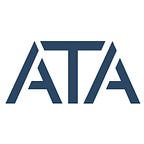Paper Census wrap-up: Austin Transportation Department
Paper Census is Austin Tech Alliance’s ongoing collaboration with the City of Austin to identify paper-based processes that are a hassle for Austin residents and then research, design, and deliver digital prototypes.
Over the past three months, ATA and the City of Austin’s Office of Design and Delivery (ODD) worked together to help make the Austin Transportation Department’s Residential Parking Program’s processes more effective and efficient.
Discovery
Before this project, Austin Transportation Department (ATD) had several roadblocks in their processes to apply and renew a Residential Parking Permit. Information about the program was hard to find and unclear. Then, to apply for a permit, residents had to fill out a paper application and mail, fax, or bring it to ATD in-person. Finally, ATD would not save resident’s personal information, which unnecessarily complicated the renewal process.
Researchers from ATA and ODD explored and analyzed the processes in-depth to more fully understand the pain-points and untapped opportunities. To do so, we conducted interviews with ATD’s Residential Parking Program staff, residents, City staff, and enforcement officers. We also shadowed residents who were going through the permit process and organized workshops that allowed ATD staff and residents to give feedback on the process and potential solutions, and tested solutions with residents. Feedback from all the people we investigated was consistent: the processes were confusing for residents and were inefficiently managed by a small number ATD staff authorized to issue permits.
ATA members from RetailMeNot and the Austin Center for Design, two ATA member companies, volunteered and used their unique skillsets to assist with research, testing, and synthesis.
Learnings and opportunities
From this research process, we discovered several key insights to inform our solution.
Learning #1
There are frustrations on both residents’ side and staff’s side, given the lack of clear, accessible information. We found that inefficient processes, paper-based services, department silos and lack of information sharing was not only frustrating residents trying to access a City service, but also staff who have to manage and maintain the service.
Opportunity
Design solutions that make the service easier for residents to access and easier for staff deliver.
Learning #2: The City collects a ton of data, but doesn’t often share it across departments
During our research with the Residential Parking Program, we realized that staff in the Residential Parking Program don’t get any detailed data on parking tickets from the Municipal court. They only get aggregate numbers of tickets issued per month.
This is a lost opportunity for the team to strategically prevent residents from getting tickets in residential parking permit zones. If, for instance, staff sees that a certain area receives a spike in tickets during a renewal month, they might be able to send reminders to the eligible residents living in the area.
Opportunity
First, stitch city and community services together to build a more cohesive and collaborative service ecosystem. Second, encourage departments to see how they can deliver services more seamlessly by sharing knowledge and collaborating with each other
Learning #3: There are often attempts to fix one piece of a service, such as digitizing a paper form, but that doesn’t address all the pain points
It became clear that without addressing pain points and gaps throughout the service journey, focusing on form updates alone wasn’t going to radically transform services for the better.
Opportunity
Conduct research on the entire life cycle of a service, identify the pain points and gaps we might be able to address throughout, come up with ideas to address them, and prototype and test those ideas with the intention of improving the service as a whole.
Implementing opportunities
We analyzed more than 200 data points to deliver a solution to the ATD: a Residential Parking Portal. This central source of information can include all aspects of the Residential Parking Program, easily allowing residents to match their permitting needs with available options. The portal allows residents to enter their personal information to receive a parking permit and saves it so the information is stored when residents renew each year. The prototype was tested and iterated upon with residents to ensure it was as informative and user-friendly as possible.
On the back end, it cuts down on staff time by reducing the number of paper forms that must be manually inputted, and by creating a database of residents who can be easily contacted when their permits expire, or other issues arise within their Zone.
What’s next?
ATD is working to develop the Portal for a 2019 launch. They are using our tested designs, descriptions of the features, and future state recommendations that our research provided.
Austin Tech Alliance is a member-based nonprofit dedicated to promoting civic engagement in Austin’s tech sector. We focus on:
- Educating the tech grassroots on issues that impact them
- Advocating for using tech as a tool to help solve civic challenges
- Activating the tech community to speak up, participate, and vote
Learn more about becoming an ATA member.
